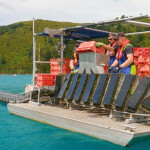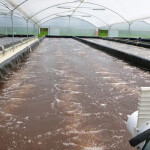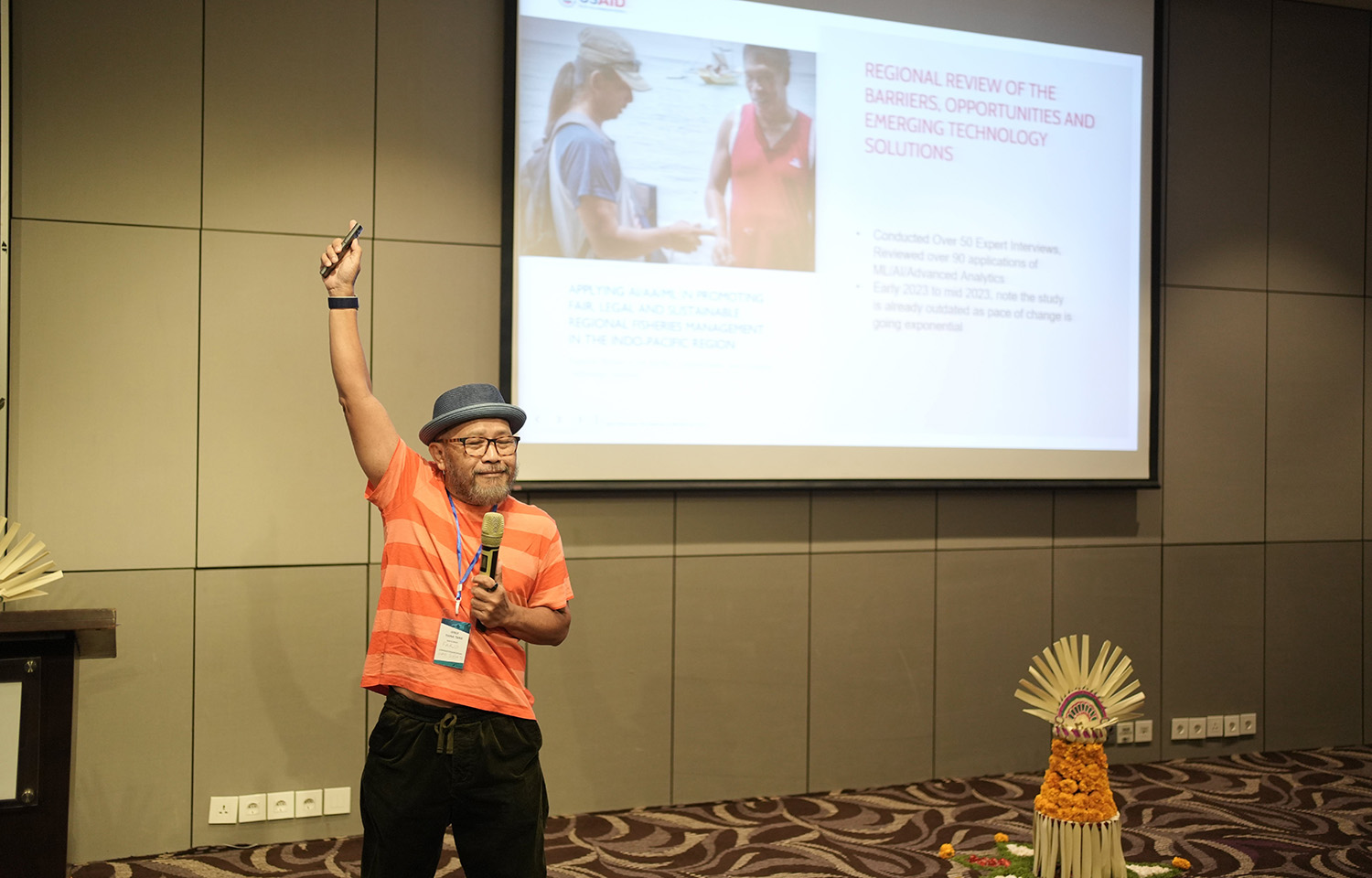SeafoodSource is closely following the sustainable seafood movement by compiling a regular round-up of sector updates about sustainability initiatives and certifications.
- More than 2,700 fishing vessels spent more than six uninterrupted months at sea in 2023, according to new analysis from Oceana.
The marine-focused NGO found Chinese-flagged vessels were involved in more than 1,500 of those voyages, while Taiwan, Japan, and South Korea all had more than 100 such trips. There were 617 fishing vessels that remained at sea for more than a year straight, and 120 vessels that spent two years or more at sea between 30 November 2022 and 1 February 2024. One vessel stayed at sea for nearly 1,100 days. Nearly 40 percent of the extended fishing trips noted in the report were completed by squid-jiggers, with approximately 40 percent of all squid-jiggers conducting voyages lasting longer than a year.
Oceana Campaign Director Max Valentine said long fishing trips can be a risk indicator of seafood sourced from illegal fishing or human rights abuses.
“Extensive time at sea keeps vessels away from scrutiny and increases the risk of illicit conduct on the high seas,” Valentine said. “Without port visits, these vessels can avoid oversight for sometimes years at a time. We cannot have accountability at sea without transparency at sea. Most U.S. seafood that is in our stores, restaurants, and schools is imported, which means American consumers are at risk of purchasing products which could have been caught illegally or by using forced labor from these long voyages. Countries around the world must adopt policies to increase transparency at sea to mitigate risks to our oceans and those who depend on them.”
The study, which used automatic identification system data from Global Fishing Watch, also discovered 3,800 potential transshipment events on 726 separate fishing trips. In response to the study, Oceana is calling for the mandatory deployment of AIS on all fishing vessels, and the requirement that time spent at sea be included in catch documentation for imported seafood.
- French supermarket chain Carrefour has partnered with the Global Tuna Alliance and committed to making significant transformations within its tuna supply chain.
In a press statement, Carrefour said it will work to strengthen fisheries management practices and address social and environmental risks with direct action. In its first action related to the partnership, Carrefour said it will suspend its sourcing of Indian Ocean yellowfin tuna for the company’s own-brand canned products across France, Italy, Spain, and Belgium.
“This definitive action underscores Carrefour’s prioritization of responsible sourcing and its stance against unsustainable tuna fishing practices,” it said. “This collaboration sends a unified message from the retail sector to regional fisheries management organizations (RFMOs), emphasizing the urgent need for sustainable management to ensure the long-term viability of tuna stocks.”
Carrefour said it is partnering with GTA to work to ensure best practices are employed on all vessels supplying Carrefour and improve tuna fishing regulations and management more broadly.
“Carrefour acknowledges the persistent environmental and social challenges posed by tuna fishing. In response, the group is taking proactive steps to engage the tuna sector and lead collective action to reverse the long trend of declining populations,” it said. “Carrefour is also collaborating with other brands to share and implement practices aimed at reducing the impact of different fishing techniques, notably fish aggregating devices (FADs).”
Carrefour said it is also decreasing the proportion of its tuna products sourced from fisheries using FADs “until management of such gear is sufficiently improves and FADs can be employed more responsibly and sustainably.”
“We need to be the change for our ocean,” Carrefour Chief Impact Officer Carine Kraus said. “Tuna stocks need to be managed sustainably with the correct regulations in place, and fishers need to stick to these rules, allowing transparency on the water to ensure compliance.”
- Ghana and Comoros have committed to join the Fisheries Transparency Initiative (FiTI).
FiTI is a global partnership aiming to increase transparency and participation in marine sustainable management among nations with fishing industries. Other nations committed to FiTI are Mauritania, Seychelles, Senegal, Cabo Verde, Madagascar, São Tomé and Príncipe, Ecuador, Guinea, and Chile.
Comoros has an exclusive economic zone (EEZ) approximately 100 times larger than its land area and an annual catch estimated at 33,000 metric tons.
“We are firmly convinced that optimal exploitation of fisheries resources for economic growth cannot be achieved without transparency and the participation of various stakeholders,” Comoros Minister of Agriculture, Fisheries, Environment, Tourism, and Handicrafts H.E. Houmed M’Saidie said in a press release.
Ghana previously participated in FiTI through its Open Government Partnership, which promotes transparent, inclusive, and accountable governance across all sectors and government functions, and a commitment to enhance transparency in the nation’s fishing sector was included in its OGP National Action Plan 2024-2028.
FiTI’s 2023 report, “Taking Stock: Online Transparency of Fisheries Management Information for the United States of America,” found Ghana is not data-deficient but does lack the framework to make valuable fisheries information publicly accessible and usable.
“With this commitment, the national authorities of Ghana are now seeking to collaborate with relevant government regulatory institutions, industry and fisheries civil society organizations to improve accessibility and transparency in marine fisheries management in accordance with the FiTI standard,” Ghana Minister of Fisheries and Aquaculture Development Mavis Hawa Koomson said.
- The International Pole and Line Foundation (IPNLF) hosted the IPNLF Think Tank event in Bali, Indonesia, in May 2024 to address challenges faced by small-scale fisheries globally.
More than 40 participants from 14 countries participated in the two-day event, including representatives from Woolworths, Seafood Souq, ICV Africa, Anova Seafood, Tri Marine, NUSATUNA, PT Harta Samudra, PT SMS, and PT Nutrindo Fresfood Internasional. A primary goal of the event was to investigate technological solutions for enhancing safety, operational efficiency, and sustainable practices in small-scale fisheries.
“Numerous organizations are currently working on groundbreaking technologies in isolation. However, the true innovation lies in bringing these entities together to collaborate and expedite the best solutions. This collective effort brought the vision of a technology-rich, environmentally sustainable small-scale fishery into a tangible reality,” IPNLF Fisheries Director Craig Turley said in a press release.
The event concluded with the formation of a solution-focused working group and a plan to conduct follow-ups on conceptual designs for technological solutions to build more advanced smale-scale fishing vessels.
- Accountability.Fish has continued its criticism of regional fisheries management organizations, accusing them of “failing to sustain international fisheries and protect marine biodiversity” and being “wholly ill-equipped to take on additional responsibilities for ensuring oceans sustainability.”
Founded in 2022 by U.S.-based marine governance expert Ryan Orgera, Accountability.Fish is a leading campaigner for RFMO reform.
“With fish populations increasingly at risk and climate impacts worsening, fundamental reforms are urgently needed,” Orgera said in a statement. “The main reason why RFMOs are wholly unsuitable for a greater role in marine sustainability at this time is that the RFMOs are dominated by industrial fishing interests and generally lack transparency and inclusiveness of non-extracting stakeholders. They are also severely hampered in their effectiveness by consensus-based voting rules that often give their worst actors veto power over any substantive changes.”
Orgera said he has grave concerns that the United Nations Agreement on Biodiversity Beyond National Jurisdiction, also known as the High Seas Treaty, mandates area-based fishery management tools and environmental impact assessments for marine species, necessitating coordination with RFMOs, which he said have demonstrated an unwillingness to participate meaningfully.
“RFMOs are either incapable of changing, or are unwilling to conform even to the basic requirements of their mandate. Their reliance on closed-door processes and back-room dealing make them unsuitable for this massive increase in remit and responsibility,” he said. “The future of our oceans depends on modernizing RFMOs. That means making them accountable to the full range of stakeholders beyond their current focus on satisfying the demands of industrial fishers. This transformation is an opportunity we cannot afford to miss.”








